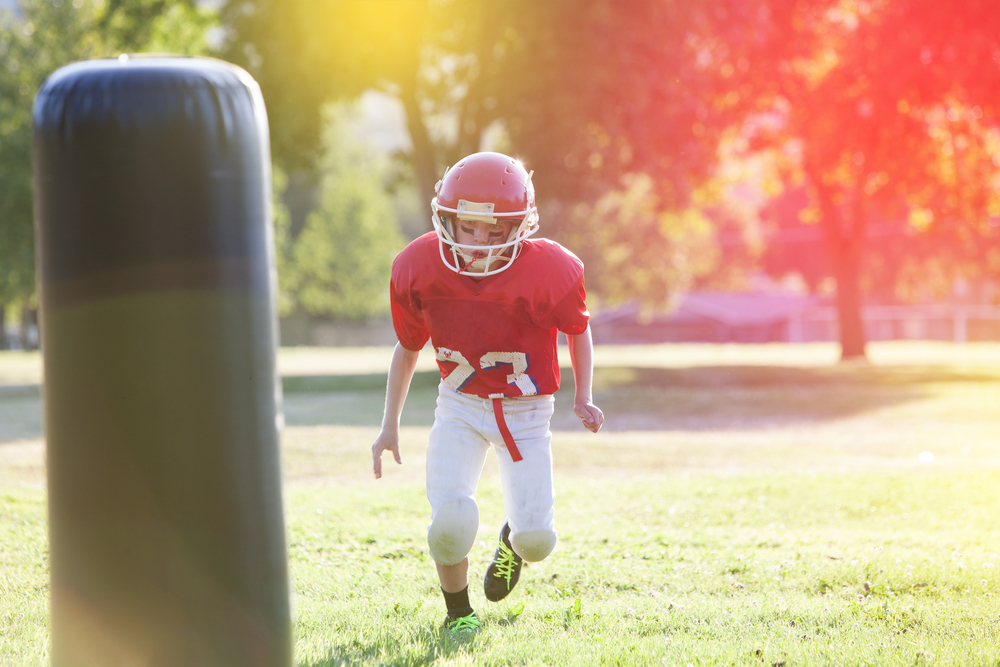Football season brings packed stadiums, Friday night lights, and excitement for fans of all ages. But along with the thrills of the game come serious risks for both players and spectators. Concussions and other injuries remain a growing concern — not just for professional athletes, but also for student players and even fans attending games.
When injuries happen, questions quickly follow: Who is responsible? What rights do victims have? And how can families protect their loved ones?
Concussions in Football Players
Football is one of the sports most closely associated with concussions. These brain injuries occur when a blow to the head or body causes the brain to move rapidly inside the skull, leading to headaches, dizziness, confusion, and sometimes long-term damage.
Youth and High School Players
- Student athletes face heightened risks due to developing brains and the intensity of play.
- Schools and athletic programs have a legal duty to protect players — through proper equipment, concussion protocols, and immediate medical attention when injuries occur.
- Failure to follow established safety guidelines can expose schools, coaches, or athletic associations to liability.
Long-Term Effects
- Repeated concussions can contribute to chronic traumatic encephalopathy (CTE), a degenerative brain disease linked to memory loss, mood disorders, and impaired judgment.
- Lawsuits filed against the NFL highlighted the devastating consequences of inadequate protection and have prompted reforms across all levels of the sport.
Injuries to Spectators
Football games also present risks to fans. Common examples include:
- Slip-and-fall accidents on wet or poorly maintained walkways.
- Crowd-related injuries, such as trampling or altercations due to inadequate security.
- Flying equipment or objects (balls, gear, or debris from fireworks/pyrotechnics).
- Heat-related illnesses during late-summer games without adequate shade or hydration stations.
Stadium owners and event operators have a duty to provide reasonably safe premises. When they fail, injured spectators may be able to pursue premises liability claims.
Duty of Care and Liability
Both players and spectators depend on organizations, schools, and venue operators to prioritize safety. When they don’t, the consequences can be life-changing. Legal responsibility may arise when:
- Schools or teams fail to enforce concussion protocols.
- Coaches pressure injured players to return to the field prematurely.
- Stadiums lack proper maintenance, security, and/or emergency medical care.
- Event organizers ignore known safety hazards.
In these situations, victims may have grounds to file a personal injury claim. These claims differ from ordinary accidents in that they require proof of negligence — that someone in a position of responsibility failed to take reasonable precautions to prevent harm.
Depending on the circumstances, claims may involve:
- Negligent Supervision: Against schools, coaches, or athletic associations that ignore medical guidance.
- Premises Liability: Against stadium owners or operators for unsafe property conditions.
- Negligent Security: When fights, crowd surges, or assaults occur due to inadequate staffing or oversight.
- Product Liability: If defective helmets, pads, or other equipment contributed to a player’s injuries.
These cases not only seek compensation for medical expenses, lost income, and pain and suffering, but they can also push organizations to adopt stronger safety measures for future players and fans.
What Parents and Families Should Know
For parents of student athletes:
- Insist on baseline concussion testing and proper protective gear.
- Be alert for symptoms of concussions and advocate for immediate removal from play if one is suspected.
- Understand your legal rights if negligence contributed to your child’s injury.
For families of spectators:
- Report unsafe conditions or injuries immediately to stadium staff.
- Seek medical care right away and document the incident.
- Consult an attorney if the injury was caused by inadequate safety measures.
How Hilliard Law Can Help
At Hilliard Law, we understand the devastating impact of brain injuries and other serious accidents tied to football season.
Our attorneys have decades of experience representing victims of catastrophic injury, negligent security, and unsafe premises. Whether your case involves a player forced back into play too soon or a spectator hurt at a stadium, we are here to investigate, hold the responsible parties accountable, and pursue the compensation you deserve.
Call (866) 927-3420 or contact us online for a free, confidential consultation.

